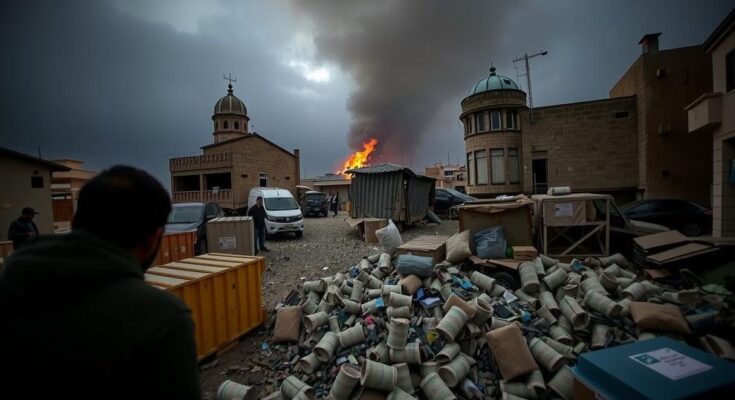Lebanon’s humanitarian crisis deepens with over 1.3 million people displaced by increased Israeli attacks. A request for $250 million monthly assistance has been made, as officials liken the scale of displacement to that of a natural disaster. The use of white phosphorus by Israel raises serious legal concerns.
In response to escalating conflict with Israel, the Lebanese government has highlighted a pressing humanitarian crisis, revealing that approximately 1.3 million individuals have been displaced. Recent Israeli attacks have intensified, including bombardment of notable sites such as the ancient port city of Tyre, prompting officials to describe the scale of displacement as unprecedented, comparable to the devastation witnessed during a significant natural disaster. Amidst these developments, Lebanon’s Cabinet member Nasser Yassin articulated the urgent need for financial assistance, estimating that Lebanon requires $250 million monthly to support the displaced population. Research indicates that this financial plea aligns with rising international awareness regarding the crises facing Lebanon, particularly as an international summit focused on the situation is set to convene in Paris later this week.
The current conflict between Israel and Hezbollah has dramatically escalated, resulting in widespread devastation and displacement within Lebanon. The violence has notably impacted civilian areas, with frequent airstrikes leading to significant casualties and damages. The United Nations peacekeeping forces have also faced risks, with reports suggesting the use of prohibited weapons like white phosphorus by Israeli military forces. Following intense escalations, humanitarian efforts have become crucial, as Lebanon grapples with accommodating a large number of internally displaced persons. The Lebanese government is now urgently seeking international support to provide for the needs of these individuals.
In summary, Lebanon faces a critical humanitarian crisis characterized by unprecedented displacement as a result of intensified Israeli attacks. With over a million people affected, the government has articulated a dire financial need to manage this situation properly. Furthermore, international scrutiny regarding wartime conduct, including the potential use of banned weapons, raises significant ethical and legal concerns that demand urgent international intervention and support for Lebanon’s recovery efforts.
Original Source: www.democracynow.org



